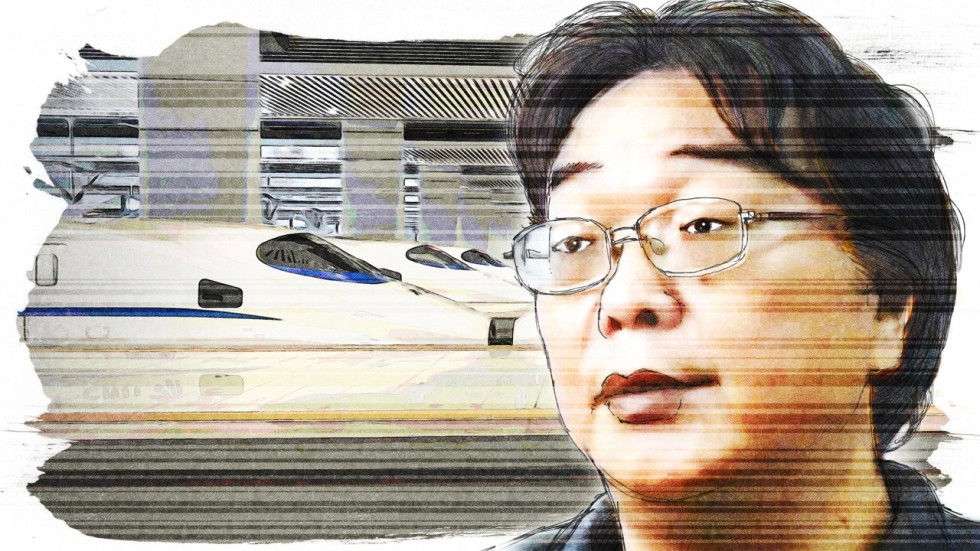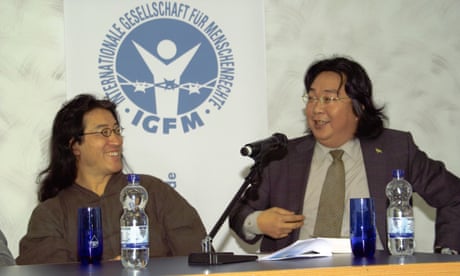BY JAMES TAGER

A general view shows Harcourt Road after it was cleared in Hong Kong early on June 22 after protests on June 21.
For most of the world’s publishers, it would be very unusual for editors to take into account a country’s extradition laws before greenlighting a book.
And yet, publishers and booksellers based in Hong Kong may well have to do so, due to a proposed new extradition policy that would have painful and chilling effects on the climate for free expression, press freedom, and the freedom to publish in the city.
Today, the future of the policy, which would allow those arrested in Hong Kong to be extradited to mainland China, stands on a knife’s edge: The bill has been so unpopular that it has been the target of a series of historically massive demonstrations, with hundreds of thousands of protesters taking to the streets.
Today, the future of the policy, which would allow those arrested in Hong Kong to be extradited to mainland China, stands on a knife’s edge: The bill has been so unpopular that it has been the target of a series of historically massive demonstrations, with hundreds of thousands of protesters taking to the streets.
On June 15, Hong Kong’s Chief Executive Carrie Lam announced that the bill was indefinitely suspended, but she has so far refused to withdraw it entirely.
The next few days may determine whether this bill lurches forward or dies entirely as protesters gear up for another round of demonstrations.
Publishers across the globe should be paying very close attention, as their rights are among those at stake.
Publishers across the globe should be paying very close attention, as their rights are among those at stake.
If passed, such a law could force publishers with a presence in Hong Kong to choose between risking the safety of their staff or submitting to China’s harsh political censorship system under which criminal charges can lead to prison.
If passed, such a law could force publishers with a presence in Hong Kong to choose between risking the safety of their staff or submitting to China’s harsh political censorship system under which criminal charges can lead to prison.
Although Hong Kong is Chinese territory, it has a separate legal system from the rest of China, as a consequence of the 1997 handover from British control.
If passed, such a law could force publishers with a presence in Hong Kong to choose between risking the safety of their staff or submitting to China’s harsh political censorship system under which criminal charges can lead to prison.
Although Hong Kong is Chinese territory, it has a separate legal system from the rest of China, as a consequence of the 1997 handover from British control.
This legal distinction means Hong Kong cannot at the moment turn over criminal suspects to China without a formalized extradition agreement between the two—which, to this day, China and Hong Kong do not have.
This may sound insignificant, but it is actually critical to guaranteeing the rights of Hong Kong’s people.
This may sound insignificant, but it is actually critical to guaranteeing the rights of Hong Kong’s people.
In Hong Kong, the judiciary is independent from authorities, and fair trial rights are generally guaranteed.
In mainland China—whose courts have a conviction rate of over 99 percent—the picture is dramatically different: Torture and coerced confessions are systemic, closed-door show trials are not uncommon, and the courts follow the mandate of Chinese Communist Party officials.
The Chinese wield the courts as a weapon against political dissidents, criminalizing vast categories of political expression.
This is why large segments of Hong Kong society have reacted with such alarm to the news that Hong Kong’s legislature was attempting to ram through a sweeping legal change—one that would grant broad new powers to Hong Kong’s chief executive to authorize the extradition of any person in Hong Kong on the so-called request of mainland authorities.
Over the past couple weeks, Hong Kongers have protested in massive numbers: Organizers have estimated that a demonstration on June 16 saw almost 2 million demonstrators taking to the streets— in a city of less than 8 million people.
This is why large segments of Hong Kong society have reacted with such alarm to the news that Hong Kong’s legislature was attempting to ram through a sweeping legal change—one that would grant broad new powers to Hong Kong’s chief executive to authorize the extradition of any person in Hong Kong on the so-called request of mainland authorities.
Over the past couple weeks, Hong Kongers have protested in massive numbers: Organizers have estimated that a demonstration on June 16 saw almost 2 million demonstrators taking to the streets— in a city of less than 8 million people.
The artistic community has also responded, with art galleries closing their doors in an act of protest.
Business leaders have also expressed concerns, causing a dip in the Hong Kong stock market, and earlier this month 3,000 lawyers participated in a rare silent protestthrough the city streets.
International publishers should similarly be deeply concerned: If the extradition bill passes, no publisher in Hong Kong will be free from the threat of criminal charges.
International publishers should similarly be deeply concerned: If the extradition bill passes, no publisher in Hong Kong will be free from the threat of criminal charges.
The amendments apply to foreigners as well as citizens, meaning that anyone within—or even passing through—Hong Kong’s borders would be a potential target for extradition to the mainland. International publishers and booksellers with a presence in Hong Kong are able to produce and sell books there that would never be published in the mainland for reasons of censorship, and some Hong Kong-sold books eventually end up back in mainland China through individuals who buy them while traveling for work or on vacation.
This is certainly enough for mainland authorities to view this entire sector with a prosecutorial—and persecutory—eye.
Hong Kong would rubber-stamp any extradition request from the mainland.
Hong Kong would rubber-stamp any extradition request from the mainland.
Beijing handpicks nominees for the position of Hong Kong’s chief executive.
It’s naive to think that the chief executive, Lam, would reject an extradition request from the same authorities who picked her for the job.
And the decision to extradite would essentially be hers alone.
The Hong Kong legislature—with a large majority of pro-Beijing stalwarts sitting alongside a nonetheless sizable minority of pro-democracy delegates—would have no authority to scrutinize extradition requests.
Similarly, Hong Kong courts would have little say in the matter: A Hong Kong judge would be required to approve extradition as long as there was sufficient prima-facie evidence to result in an indictment.
Similarly, Hong Kong courts would have little say in the matter: A Hong Kong judge would be required to approve extradition as long as there was sufficient prima-facie evidence to result in an indictment.
This is a low standard of proof, compared to the standard for a criminal conviction.
And while the courts can reject an extradition request if they find it is politically motivated, the burden is on suspects to prove they are being politically targeted.
In other words, Hong Kong courts would essentially be taking mainland authorities at their word that they filed an actionable extradition request in good faith.
But authorities in mainland China have a history of bad faith in this regard, and several of the most troubling examples involve the publishing world.
But authorities in mainland China have a history of bad faith in this regard, and several of the most troubling examples involve the publishing world.
In the past few years alone, Chinese state agents have abducted several Hong Kong-based booksellers or publishers, putting them through a Kafkaesque legal process.
In 2014, a Shenzhen court sentenced the Hong Kong publisher Yiu Man-tin to 10 years in prison for “smuggling ordinary goods,” after he planned to publish a book critical of Chinese dictator Xi Jinping.
The following year, Chinese agents abducted five Hong Kong booksellers, forcing them to appear on state television to give coerced confessions regarding running an “illegal business” by selling books to mainland China.
The following year, Chinese agents abducted five Hong Kong booksellers, forcing them to appear on state television to give coerced confessions regarding running an “illegal business” by selling books to mainland China.
This case, known as the Causeway Bay Books disappearances, is still not resolved: More than three years later, one of the booksellers—the Swedish citizen Gui Minhai — is still detained incommunicado in China as his health worsens.
In fact, mainland authorities have no problem making up spurious legal claims to punish independent voices in the Hong Kong publishing world.
In fact, mainland authorities have no problem making up spurious legal claims to punish independent voices in the Hong Kong publishing world.
After Gui was kidnapped from his vacation home in Thailand in October 2015 by Chinese agents, mainland authorities claimed that he had voluntarily returned to China to resolve a decade-old hit-and-run charge against him.
While Hong Kong’s government has claimed that the proposed bill would not enable extradition for political crimes or for various types of commercial crimes, experts have pointed out that this would not stop mainland authorities from using elastically defined charges—like fraud—as a pretext for political censorship.
While Hong Kong’s government has claimed that the proposed bill would not enable extradition for political crimes or for various types of commercial crimes, experts have pointed out that this would not stop mainland authorities from using elastically defined charges—like fraud—as a pretext for political censorship.
After all, if Chinese state agents are willing to egregiously break international law through kidnapping publishers, it is hard to believe they will act with restraint after given this powerful new legal tool.
Protesters have begun demanding that the Hong Kong government withdraw the bill entirely, that Lam resign, and that the government drop charges against those who have been arrested.
Protesters have begun demanding that the Hong Kong government withdraw the bill entirely, that Lam resign, and that the government drop charges against those who have been arrested.
Additional demonstrations are already planned, meaning that the future of this bill could be decided within the next few weeks.
Given the incredible outpouring of protest against this bill, it would be easy to conclude that the threat has already passed.
Given the incredible outpouring of protest against this bill, it would be easy to conclude that the threat has already passed.
After all, Lam has already announced the bill’s suspension.
But a suspended bill can always arise again.
Lam has pointedly refused to commit to scrapping the bill entirely, saying she would only proceed with it if the “fears and anxieties” of Hong Kongers could be “adequately addressed.”
That leaves a lot of wiggle room for the government to propose a new version of this bill down the road, once Lam or top officials in Beijing decide that the people are no longer so anxious.
Publishers and booksellers with staff in Hong Kong (or visiting the city) should be very worried. Hong Kong has traditionally been a bastion of media freedom and uncensored publishing in Asia—accessible to the Chinese market but removed from China’s censorship strictures and its criminal penalties for those who speak truth to power.
The extradition bill and future legislation like it would threaten this freedom, and publishers around the world would need to begin asking themselves, “If I publish this book in Hong Kong, is there a chance that I or a colleague could face criminal charges in a Chinese court?”
Publishers and booksellers with staff in Hong Kong (or visiting the city) should be very worried. Hong Kong has traditionally been a bastion of media freedom and uncensored publishing in Asia—accessible to the Chinese market but removed from China’s censorship strictures and its criminal penalties for those who speak truth to power.
The extradition bill and future legislation like it would threaten this freedom, and publishers around the world would need to begin asking themselves, “If I publish this book in Hong Kong, is there a chance that I or a colleague could face criminal charges in a Chinese court?”
The result will be self-censorship driven by fear as Hong Kong is further stripped of the protections that make it a safe harbor for readers and booksellers alike.




